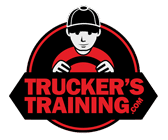The importance of the trucking sector to economic development is under-appreciated. However, CDL truck drivers are essential for both economic development and the contemporary marketplace’s capacity to function. The global and local economy could not operate without the work of professional truck drivers. Trucking is also a dynamic business that faces new challenges every day and is always innovating to meet those challenges.
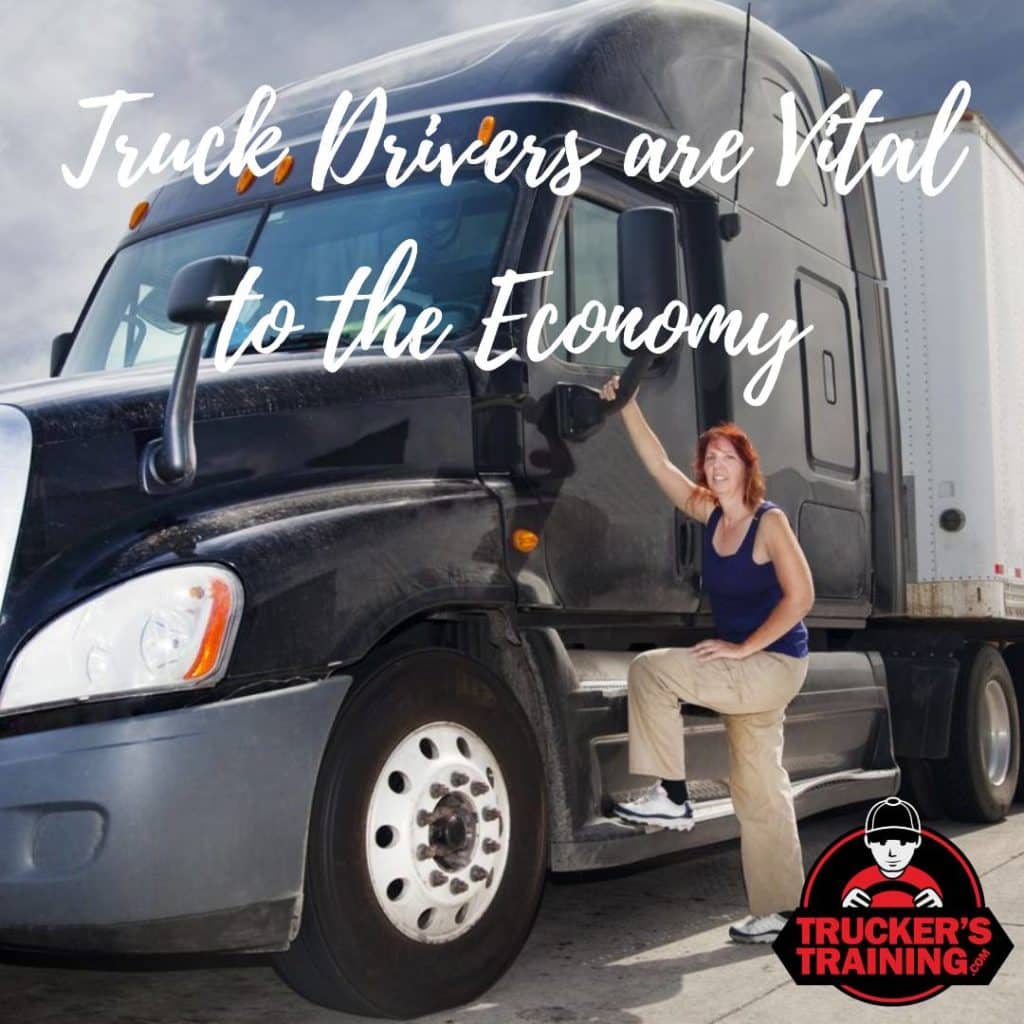
Supply Chain Stats
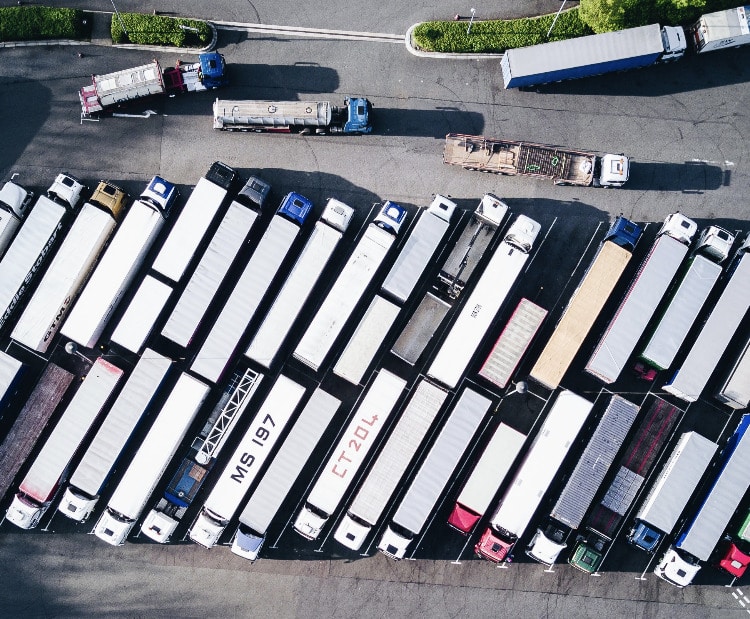
Three-quarters of all freight moved in the United States is transported by professional truck drivers. The great majority of consumer and business items are transported from point A to point B by truck drivers. 3.5 million truck drivers transported 10 billion tons of freight in the United States alone in 2017. Truck drivers are required to deliver daily deliveries in 80% of American cities. Not a single industry that relies on trucks or transportation logistics is included in this analysis.
In our nation’s economy and supply chain, trucks are a vital component. It’s estimated that 71.6% of all freight shipments in America are transported by truck, which equates to nearly $800 billion in annual revenue. Our country’s economy would collapse if not for the trucking business. It is more critical than ever for truck drivers to be on the road during the current COVID-19 pandemic.
Ways Commercial Drivers Keep the Nation and Economy Going
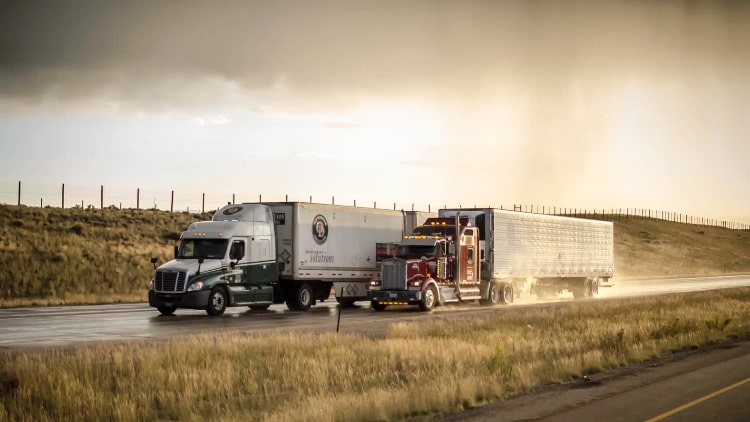
Truck driver shortages in the United States have resulted in a wide range of problems, including shortages of goods in stores, delays in home repair projects, and delays in crucial orders for businesses. This has been an issue for decades since it relates to the total number of drivers that can transport the commodities of our country at any one moment.
Our supply chain was disrupted in unexpected ways by the epidemic and the increased demand for items transported by trucks made the situation much more obvious. Taking action now is critical for the well-being of everyone who shares the road with truck drivers, including those who are forced to work long, stressful, and frequently underpaid shifts away from their families.
Here are some ways commercial drivers keep our nation and economy running.
Food and Water
The vast majority of grocery shop purchases are transported by semi-trucks. Drivers ensure that you have everything you need, from fresh produce to canned goods, when you need them. It would only take a few days for food shortages to begin if truckers were not on the road. Because tanker trucks are capable of transporting clean water, the trucking industry contributes to the availability of this essential resource. In the case of a trucking sector shutdown, the public would see the impacts of water scarcity within two weeks.
Medications and equipment

It is not uncommon for trucks to transport medical supplies. Masks, gloves, and other essentials are all included in this package. Additionally, truckers carry prescription drugs. A large number of these must be kept in a specific way and delivered on time. Without truck deliveries, hospitals would run out of supplies within 24 hours and run out of oxygen by the end of the first week, putting patients at risk.
Production-Required Substances
More than only consumer products are transported by tractor-trailers. A range of industries relies on raw materials supplied by these companies. To put it another way, trucking affects the products that the general public and specific professions like the medical profession can access on a direct and indirect basis.
Grocery and Retail Shops
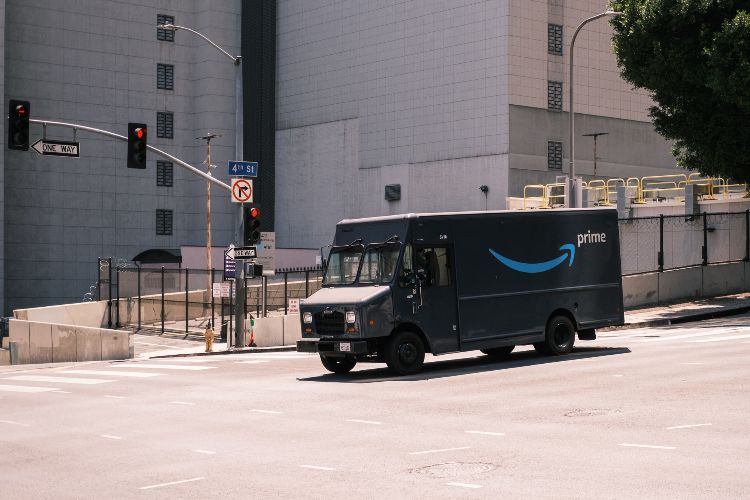
The trucking business is essential to the operation of grocery and retail shops. Local fleets and cartage businesses transport all of the goods that fill these establishments. Fruits and vegetables, meats, dairy, and other agricultural items are delivered in refrigerated containers.
The transportation of materials, supplies, food items, appliances, and equipment in the foodservice industry is also dependent on trucking. To minimize food rotting and storage concerns, restaurants often plan numerous shipments throughout the week. These shipments are essential to restaurants, and they couldn’t be transported without the help of trucking companies.
Building and Remodelling Businesses
Trucking is essential to building and remodelling businesses because it transports goods from warehouses to clients’ homes. Steel, timber, concrete, and hardware are just a few of the necessities that must be delivered to construction sites, residences, retail establishments, and warehouses. Heavy industrial or construction equipment, as well as movable structures for job site office space, may be delivered by certain cartage businesses as well.
Additional Necessary Items
Semi-trucks are used to transport about any item you can think of. Because of the sheer volume of freight moving through this route, the trucking industry plays a critical role in the distribution of everyday necessities like toilet paper and cleaning supplies. Truckers assist in replenishing shelves depleted by retailers due to the high demand for these items.
Impact on Drivers and the Economy

The shockingly low retention rate of present truck drivers is the root cause of the shortage of truck drivers in the United States. Over 90% of long-haul truck driver turnover is common among big trucking businesses. 72 percent of the time, it’s not much better for the smaller ones. Drivers in the long-haul profession are often resigning or quitting completely.
An exodus of such proportions costs the United States dearly. It has a significant financial impact on the drivers, many of whom paid for training or even purchased trucks in order to break into the industry. The transportation of commodities we depend on might be disrupted if there aren’t enough drivers to handle the workload. About 72% of goods in the United States are carried by truck, and for many areas, trucks are the sole means of delivery.
A Hazardous Job

We also know that high driver turnover compromises the safety of everyone on the road, including other motorists and truck drivers. Drivers with greater experience and those who remain with the same firm are less likely to be involved in a collision, according to many studies.
Large trucks were to blame for the deaths of more than 5,000 Americans in 2019, an increase that has been occurring continuously. Truck drivers made up the majority of the dead, numbering in the hundreds of thousands. The profession of a truck driver is still one of the most hazardous in the United States. It isn’t necessary.
Changing the Tide for Trucking

The Supply Chain Disruption Task Force convened a meeting with truck drivers, corporations, labor leaders, activists, and academia last year. One of the topics covered was driver retention. How does the industry keep truck drivers around longer, which is one of the ways to reduce driver churn. Can drivers be paid by the hour rather than the mile? This change in compensation would help to remove any incentive for drivers to go fast and compensate them during delays they have no control over.
More flexible working hours and prospects, technology that improves safety and minimizes time away from home were also mentioned. It may be necessary to adjust long-standing company procedures.
Some individuals have suggested that the fault is in the recruiting process. Without jeopardizing safety, DOT has used all available levers to get drivers on the road. State Departments of Motor Vehicles now have the resources they need to issue new commercial driver’s licenses and permits.
Keeping Everyone Happy

As long as conditions and pay improve, we’re happy that more individuals are entering the workforce. Until then, we’re stuck with a leaking bucket that no amount of turning the faucet up can fix. Increasing the number of Registered Apprenticeships in the trucking sector is one of the solutions to improve retention. Apprenticeships provide paid, on-the-job training for people. In a variety of fields, they’ve been demonstrated to boost employee retention rates.
Some have questioned whether or not it’s worthwhile to put resources into this business in light of the impending arrival of driverless cars. That’s what we’re led to believe. The goal is to provide training and apprenticeships so that employees may flourish in today’s business and be ready for the hybrid industry of tomorrow. If there is concerted efforts to enhance labor protections and training paths today, trucking will continue to be a decent job in the future.
Truck drivers are just as important as physicians and nurses, so why aren’t we treating them that way?The objective should be to assist truck drivers to earn a position in the middle class by transforming their hard and sometimes thankless professions into meaningful employment. Additionally, improving the safety of commercial truck drivers would help to reduce the number of casualties on the road.
Solving the truck driver retention issue will take years, if not decades, just as it took decades to build up. However, nothing is impossible.
Moving the Economy Forward Requires Trucking

The trucking business is essential to manufacturing because it transports the raw materials needed for production. Modern industry relies on transportation for everything from wood to plastics to steel to car components to diverse textiles. Computers and other digital components are also constantly being transported locally and globally by the technology industry. Unless trucks were used to transport them, the electrical items that we today take for granted simply couldn’t be created.
Conclusion
All of the goods and services we take for granted are made accessible to us by truckers. Although new transportation techniques and technologies such as driver assistance systems and renewable energy sources emerge, trucking remains an essential part of the American and global economy. The trucking sector will continue to play an important part in the expansion of the economy.

Marina was in corporate communications for over 15 years before becoming a freelance writer for TruckersTraining.com. She's been writing about transportation, and the supply chain and trucking industry for over five years. Her father was in the trucking and logging business which exposed her to the industry. Her passions include travel, nature and entrepreneurship.
